ICPSR Flanigan, Miller, and Simmons Awards
As part of its mission to support the social sciences, ICPSR Awards recognize individuals who have distinguished themselves in their service to the social science community. The awards are presented during the ICPSR Biennial Meetings, which are held every two years (odd-numbered years).
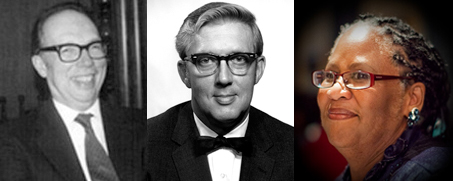
The William H. Flanigan Award for Distinguished Service as an ICPSR Official Representative
The Flanigan Award was established in 1995 and is intended to acknowledge the contributions of individuals representing ICPSR member institutions. The award is named for William H. Flanigan, who served as ICPSR Official Representative from the University of Minnesota for 37 years, from ICPSR’s inception in 1962 until 2000. He also served as Chair of the ICPSR Council from 1991 to 1993. See all Flanigan Award Winners.
Flanigan Award Procedures
The ICPSR selection committee will consist of ICPSR staff and faculty appointed by the director. Nominations are solicited in January or February of odd-numbered years.
More about William H. Flanigan
A long-serving ICPSR Official Representative beginning in 1962 with the inception of ICPSR, William Flanigan also served two terms on the ICPSR Council and as the Council Chair in the 1990s. William H. Flanigan is Professor Emeritus of Political Science at the University of Minnesota and the author of several important books on electoral behavior.
The Warren E. Miller Award for Meritorious Service to the Social Sciences
The Miller Award was initiated in 1993 to recognize individuals who have had a profound impact on social science research and infrastructure. The award is named for Warren E. Miller, a founder of ICPSR and its first Executive Director, who demonstrated throughout his career exemplary service to the social science community and a talent for building institutions that have survived beyond his direct involvement and continue to prosper. See all Miller Award Winners.
Miller Award Procedures
The ICPSR selection committee will consist of ICPSR staff and faculty appointed by the director. Nominations are solicited in January or February of odd-numbered years.
More about Warren E. Miller
Warren E. Miller was the founder of ICPSR and its first executive director. He also founded the Center for Political Studies in the Institute for Social Research, University of Michigan, and was active in the American National Election Studies. He was a Professor of Political Science at the U-M from 1956 until 1980 and a Regents’ Professor at Arizona State University until his death in 1999. He was one of the authors of The American Voter, a landmark work on voting behavior.
The Piper A. Simmons Award for Social and Behavioral Research Data Contributions
The Simmons Award was established in 2022 to recognize the outstanding effort of a data contributor to share important data contributing significantly to social and behavioral research. This award is named for our colleague Piper Simmons, who served as an ICPSR Acquisitions champion during her 32+ years of service. Piper, who retired in 2019 from ICPSR, passed away in 2022 and left a legacy of passionately working with researchers to navigate data sharing through ICPSR. See all Simmons Award Winners.
Simmons Award Procedures
The ICPSR selection committee will consist of five ICPSR staff and faculty appointed by the director based on recommendations from the Staff Advisory Committee and the ICPSR data acquisitions staff. Nominations are solicited by open invitation.
More about Piper A. Simmons
Piper A. Simmons was known for her passion and knack for finding data depositors in a sea of lost data. As a member of ICPSR’s Acquisitions team, she often tracked down important data and supported depositors through the data deposit and dissemination process. Her work significantly and thoughtfully expanded ICPSR’s archival holdings over three decades. She played a key role in helping data depositors, assisting researchers with data management plans, and establishing ICPSR’s data acquisition leads workflow.
Award Winners
Flanigan Award Winners
Stephanie Labou

2025 William H. Flanigan Award for Distinguished Service as an ICPSR Official Representative
Data Science Librarian Stephanie Labou, an Official Representative (OR) for ICPSR at the University of California, San Diego, has helped promote ICPSR resources on her campus and assists data users in locating, downloading, and working with ICPSR data. She has been a guest on ICPSR’s Data Brunch podcast (Episode 14: Metadata and Mimosas), where she talks about how she became the “mom” of ICPSR Data mascot and ambassador Data Jeff. Labou’s ICPSR impact includes being one of the instructions for the ICPSR Summer Program workshop, “Providing Data Services and Support: From Surviving to Succeeding.”
James A. Jacobs

2023 William H. Flanigan Award for Distinguished Service as an ICPSR Official Representative
James A. Jacobs is a Data Services Librarian Emeritus, from the University of California, San Diego. He has been an inspiration, visionary, and mentor to a generation of data services and government information librarians for over 35 years. Jacobs was an early innovator who designed and built web-based tools to search and access data online. In 1990, he co-created and began teaching the ICPSR Summer Program Workshop, “Providing Social Science Data Services: Strategies for Design and Operation” with Chuck Humphries (Flanigan Award, 2005) and Diane Geraci (Flanigan Award, 2009), a team known as “The Three Data Amigos.” Since its inception, this one-week course has rigorously grounded and trained hundreds of librarians, academic staff, and computing specialists in the fundamentals of offering social science data services at their institutions. Course participants have gone on to serve (and lead) our data profession, as well as the broader library field. “When the three of us were asked to teach the ICPSR Summer Workshop for 2014, Jim was extremely supportive and generous with his knowledge and experience as we approached the daunting task of standing on the shoulders of giants,” said Name Here. Jacobs is one of the co-founders of Free Government Information (FGI), which informs, organizes, and advocates for the preservation and perpetual free access to government information. He has served on the Administrative Committee of IASSIST (International Association for Social Science Services and Technology), and continues to research, write, and consult on government information and providing data services. A selection of his publications includes “Beyond LMGTFY: Access to Government Information in a Networked World,” with James R. Jacobs in Public Knowledge: Access and Benefits, Edited by Miriam A. Drake and Donald T. Hawkins 2016; Data Basics: An Introductory Text, with Diane Geraci and Chuck Humphrey, 2012; “Born-Digital U.S. Federal Government Information: Preservation and Access” (2014 Report prepared for the Center for Research Libraries); and “Preserving research data” with Charles Humphrey (Communications of the ACM, 2004). Jacobs received his bachelor’s degree from Oberlin College and his MSLS from the University of Southern California.
Jane Fry
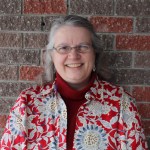
2021 William H. Flanigan Award for Distinguished Service as an ICPSR Official Representative
Jane Fry, active in the data community at Canada’s Carleton University for over 20 years, received an MLIS from San José State University (San José, CA) in 2014, an MA in Sociology from Carleton University in 1995, and a BA (Hons) from Carleton University in 1990. In 2018 she received the Professional Achievement Award at Carleton University for her many contributions. On a national level, Fry currently serves on the DLI External Advisory Committee (Statistics Canada), representing her data colleagues in the Ontario region, as well as nationally. She also continues to be actively involved with the New Digital Research Infrastructure Organization (NDRIO) and Portage, the research data management service of NDRIO.
In addition to substantial experience and knowledge in Data Services within an academic library, Fry also has very strong skills in research data management, data literacy, and teaching. For that reason, she is regularly invited to lead workshops on data-related topics in local, national, and international arenas. Fry is also a co-instructor for a summer course on providing data services at ICPSR.
Fry has a strong public service orientation, which leads her to be actively involved in a number of Library committees, as well as committees in the Carleton University community, and committees on the provincial, national, and international levels. This includes being co-chair of the DDI Training Working Group. From 2016 to 2020, Fry served as the Canadian member of ICPSR’s Governing Council, and she is always willing to pitch in to help train ICPSR Representatives on how to maximize their institutions’ use of ICPSR data and resources. She loves data and is always eager to discuss it with her colleagues at the Library and anywhere else.
Ron Nakao

2019 William H. Flanigan Award for Distinguished Service as an ICPSR Official Representative
Ron Nakao is a Social Science Data Librarian and Economics Librarian at Stanford. Nakao supports Stanford’s researchers with Data Management Plans including sharing and preserving data, and supports faculty, research staff and students on the use of statistical software and more. He is currently Stanford’s Representative to two Social Science Data Archives, ICPSR and the Roper Center for Public Opinion Research, and has previously been a board member at the Association of Public Data Users (APDU) and the Data Documentation Initiative (DDI) Alliance. Nakao has been an ICPSR representative for nearly 20 years. He is an advocate for ICPSR both internally at Stanford and externally at organizations such as IASSIST. As an OR, he has taught in the ICPSR Summer Program for several years on the delivery of data services, and has led a bootcamp which is a key introduction of ICPSR to sometimes over 60 attendees every two years. Nakao served on the ICPSR Governing Council from 2014 to 2018.
Bobray Bordelon

2017 William H. Flanigan Award for Distinguished Service as an ICPSR Official Representative
Bobray Bordelon is a long-time, active ICPSR Official Representative, who has been a knowledgeable and effective promoter of ICPSR’s data and other resources. Since 2014, he has co-taught the workshop on Providing Social Sciences Data Services, which also gives him direct experience and insights into the Summer Program workings in a way that few ORs have. Bordelon is a respected Data & Economics Librarian at Princeton, as well as in the wider professional spheres of ALA, ACRL, and IASSIST, which should bring a broad perspective from these important areas. His knowledge of the variety of data sources, and his willingness to share this expertise with the data community speaks to his commitment to public service.
Bordelon has a BS in Finance and Masters in Library & Information Science from Louisiana State University and an MBA from New Mexico State University. His professional interests involve service to state, national, and international organizations while promoting subject content and knowledge and its access.
Michael Martinez
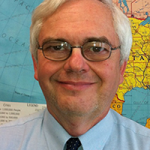
2015 William H. Flanigan Award for Distinguished Service as an ICPSR Official Representative
Michael Martinez (Ph.D., Political Science, University of Michigan) is Professor of Political Science at the University of Florida. His broad research interests include the relationship between partisanship, issue preferences, and voter choice, as well as the causes and consequences of voter participation. He is co-editor of Ambivalence and the Structure of Political Opinion and Ambivalence, Politics, and Public Policy (both with Stephen C. Craig). His research on ambivalence, voter turnout, partisanship, voting behavior, and ideology has appeared in several scholarly journals, including Journal of Politics, American Journal of Political Science, Political Research Quarterly, Political Behavior, Public Opinion Quarterly, Political Psychology, Journal of Elections, Public Opinion, and Parties, The Forum, Political Analysis, Social Science Quarterly, Canadian Journal of Political Science, State and Local Government Review, Polity, and American Politics Research.
He has received research support from the Canadian Embassy Faculty Research Support program, and was a Fulbright Scholar at the University of Calgary. He has co-authored articles and conference papers with several graduate students, including David Hill, Tad Delegal, and Jason Gainous. In 1998, the United States Information Service sponsored a series of lectures on the US election by Professor Martinez at universities in Winnipeg, Calgary, and Vancouver. In 2004, U.S. Department of State Bureau of International Information Programs sponsored Professor Martinez’s lectures on the U.S. elections at universities in Charlottetown, St. Johns, N.B., and Halifax.
Martinez has been the ICSPR Official Representative at the University of Florida since the mid-1990s. He also serves as the ICPSR coordinator for the Florida federation, a consortium of ten universities. He is instrumental in maintaining that federation and regularly coordinates and communicates with those schools and ORs with respect to ICPSR and our resources and services.
Daniel C. Tsang

2013 William H. Flanigan Award for Distinguished Service as an ICPSR Official Representative
Daniel C. Tsang (AMLS and AM in Political Science, University of Michigan) is a Distinguished Librarian at the University of California, Irvine (UCI), where he has served as ICPSR’s Official Representative since 1986. He first attended ICPSR’s summer program in 1974 while he was a University of Michigan graduate student in political science. After graduating from library school at the University of Michigan, he worked at ICPSR’s data archive, where he merged the 1972-1974-1976 National Election Studies into one file (ICPSR 7607), and also processed the Media Content Analysis Study, 1974 (ICPSR 7586).
At UCI, he serves as data librarian and a bibliographer for political science, economics, and Asian American Studies. He chairs an OCLC Research Library Partners ad hoc committee on research data-management policies. He has chaired the Data Team at UCI, served on a campus committee assessing e-research by faculty, and is the liaison to the UCI Office of Research on research data management. He runs UCI’s Social Science Data Archive, which offers selected datasets for online data analysis. He also is the UCI administrator for California Digital Library’s Web Archiving Service.
In 2004, Tsang was the first data librarian to be named a Fulbright Scholar (in Vietnam), where he researched the data situation in that country. Additionally, he has served two terms on IASSIST’s administrative committee, and has been an advocate for diversifying its membership and reaching out to data archives and archivists abroad, especially in Asia. He is a past chair of the ALA/RASD/MARS/Committee on Nonbibliographic Databases & Data Files.
Tsang has published and presented internationally on research data management and access.
Wendy Watkins
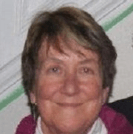
2013 William H. Flanigan Award for Distinguished Service as an ICPSR Official Representative
Wendy Watkins’ first professional job was as a hockey sociologist, a true example of value- or knowledge-free social research. Her introduction to ICPSR came in 1982 as a participant in the eight-week Summer Program, where she was fortunate to be able to study advanced statistics with top social scientists. She was a Council member from 1996 to 2000 and has been Carleton University’s Official Representative since 1984.
Watkins, with Ernie Boyko, is a founding member of the Canadian Data Liberation Initiative (DLI). This had a profound effect on the Canadian data scene as, with the work of dedicated members of the Data Liberation Army, the number of university data services increased to 75 from 9. The DLI also led to the establishment of the Canadian Network of Research Data Centres (CNRDC). She also contributed to the establishment of (Ontario Data Documentation Extraction Service and Infrastructure), a DDI-based Web data service for Ontario offered through Scholars Portal.
She is a long-standing member of the International Federation of Data Organizations (IFDO) and served on its board until 2009. She also was the Canadian Secretary of IASSIST for several years and has held other administrative roles in the organization. She currently is the Data Librarian at Carleton University and is planning a sabbatical in the near future.
Paula Lackie

2011 William H. Flanigan Award for Distinguished Service as an ICPSR Official Representative
Paula Lackie (A.B.D., University of Southern California) is the Academic Computing Coordinator for the Social Sciences and Humanities at Carleton College. She is long-time social science data advocate and social science and humanities technologist. She is active in IASSIST, chairing the International Outreach Group, and in recent years she has also worked with National Institute for Technology and Liberal Education, National Numeracy Network, Committee on Data for Science and Technology, Data Documentation Initiative, and the Science Education Resource Center.
She is a past president of the Social Science Computing Association and has served on numerous committees and councils relating to undergraduate education issues of quantitative literacy, portfolio development, supporting GIS, and program and pedagogy assessment. She consults internationally on social science data distribution, support and education. She has published in Social Sciences Computer Review, Cause/Effect, Disability Studies Quarterly, and has authored two book chapters. With Andrea Nixon and Heather Tompkins, she co-authored Curricular Uses of Visual Materials: A Mixed-Methods Institutional Study.
Lackie has worked on a myriad of Carleton projects which have involved: constructing research designs and choosing appropriate supporting tools and resources, working with students on research development, assessment, plus developing infrastructures for data-rich teaching or research projects, instructional technology implementation, user interface design, and technical instruction.
Her current research interests include exploring the pedagogical and technical contexts for the use and support of data in teaching and learning, keeping abreast of developments in Internet 2 and eSocial Science, locating and accessing hard-to-find data resources, and exploring the service-learning opportunities for students interested in the open data movement.
Lackie has been the Official Representative for more than 19 years at Carleton College (and two at the University of Southern California) and served on the ICPSR Council from 2004-2008. During her time on Council, she chaired the Preservation and Access committee and served on the following committees: Strategic Planning, Technology, Quantitative Research & Training, Nominations, Ad-hoc Committee on Membership, Ad-hoc Committee on Instructional Materials and Information Award, and Ad-hoc Membership Structure Review Committee.
She also presented at OR biennial meetings including on these topics: “Promoting quantitative reasoning among students? Focus on the faculty!” and “Carleton College Election Study 2004: A Robust Qualitative Data Entry and Management Project.” In addition, she regularly promoted ICPSR memberships to colleagues at other liberal arts colleges, including a 2004 presentation at the Instructional Technologists at Liberal Arts Colleges: “Critically Evaluating Technologies for a Liberal Arts Context.”
Laine Ruus
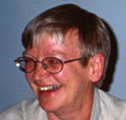
2011 William H. Flanigan Award for Distinguished Service as an ICPSR Official Representative
Laine Ruus (M.A., University of Toronto) describes herself as “the oldest living data librarian in North America.” Ruus was active as a data librarian, making social science and other data available to users, for over thirty-five years. She was head of the Data Library Service at the University of Toronto from 1988 until her retirement in 2010; prior to that she headed up the Data Library at the University of British Columbia from 1972-1988.
Ruus was a founding member of the Canadian Association of Public Data Users and was very active in IASSIST, starting in 1975 and serving as secretary, vice president, and chair or coordinator of many committees over 35 years. She was very involved in the Canadian Consortium for Social Research (now defunct) and was the official contact for the University of Toronto to the Data Liberation Initiative for many years. She presented at numerous seminars, workshops, and conferences over the course of her career and kept pace with the changes in technology. Ruus received the IASSIST Achievement Award in 2010. That award recognizes the cumulative contributions of an individual to the organization and to the profession.
Ruus served as the ICPSR Official Representative for the University of Toronto from 1988 to 2010. Additionally, in 1994 she was instrumental in forming the ICPSR Canadian federation that serves eastern Canada, the Ontario Council of University Libraries/Conference of Rectors and Principals of Quebec Universities (OCUL/CREPUQ) and in keeping that federation active. She served as the ICPSR hub representative for that federation, which now includes 19 colleges and universities, from 1995 to 2010.
Diane Geraci

2009 William H. Flanigan Award for Distinguished Service as an ICPSR Official Representative
Diane has had an extraordinary career, and she is still going strong. She is currently Associate Director for Information Resources at Massachusetts Institute of Technology Libraries, with responsibility for acquisitions and licensing, cataloging and metadata services, collection management including conservation and preservation services, Institute Archives and special collections, and technology operations.
Prior to moving to MIT, she served as Librarian for the Social Sciences at Harvard College Library, held joint appointments as the Director of Science Libraries in the University of Michigan University Library and Faculty Associate at ICPSR, and held various positions at the UK Data Archive (UKDA) at the University of Essex and at Binghamton University Libraries. At the U-M Libraries she contributed to system-wide planning efforts including the development of Deep Blue, the U-M institutional repository. Her responsibilities at the UKDA included senior management responsibility for information systems development, digital preservation, and systems administration.
Diane taught a one-week course in the ICPSR Summer Program on providing social science data services with Chuck Humphrey and Jim Jacobs for over 15 years. Her professional contributions include serving in advisory and consulting roles for several groups: the Digital Preservation Workshop Advisory Board at ICPSR; the SEDAC User Working Group at CIESIN, Columbia University; the ICPSR Council and the ICPSR External Process Review Committee; and the IASSIST Administrative Council and Program Committees. Her interests and expertise include developing research support services, digital preservation, implementing new information technologies, management of libraries and information services, and social science data archives.
As is evident from these many contributions, Diane is committed to supporting the research process and to data stewardship; she is always ready to share her expertise and to participate where she can be of service. Diane is also an expert in effective management of change. This was important since her term on the ICPSR Council was a period of great change. During her years on Council, 1998-2002, ICPSR separated from CPS, had a transition in leadership, and moved offices. Diane’s presence on the Council was a guiding hand, helping ICPSR to rise to new challenges with positive outcomes.
Libbie Stephenson
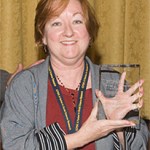
2007 William H. Flanigan Award for Distinguished Service as an ICPSR Official Representative
Libbie Stephenson is the Director of the Social Science Data Archive at the University of California, Los Angeles (UCLA). She received a B.A. in Fine Arts from University of California, Riverside, in 1975, and went on to obtain a Master’s Degree in Library Science from UCLA in 1977. In her role as archivist at UCLA, Libbie oversees collection development, bibliographic content, and reference services. She has written numerous articles on data and library topics and has participated on committees for several organizations and associations, including the Association of Public Data Users and the California Digital Library. She served as President of the International Association for Social Science Information Service and Technology (IASSIST) from 1995-1997.
Through her service on the ICPSR Council from 1996-2000 and in her role as Official Representative for UCLA, which has spanned 30 years, Libbie has demonstrated a type of commitment that is rarely seen. She has played an integral role in nearly all OR meetings during her tenure, conducting several new OR orientation sessions at the OR meetings over the years. She has been a staunch advocate for ICPSR, using her role as OR to educate others about the importance of data archiving and preservation, the protection of confidentiality, and statistical literacy, among other things. She has been a major force in community building, encouraging input with the goal of involving everyone in the larger conversation. An example is the OR Blog, which Libbie helped to create and implement.
Libbie’s impact on ICPSR has been profound. Her spirit and energy are evident in the following quote from an article that she wrote for the ICPSR Bulletin in the late 1990s titled, “The Role of the Official Representative in the 21st Century”:
“ORs should be prepared to explore and test new technologies, whether it be software for a new statistical procedure, a system for graphing data, or a technique for creating a standardized codebook. Share your new knowledge with ORs and with ICPSR. ICPSR’s future depends on our sharing of ideas and perspectives. Join in the discussion!”
Ilona Einowski
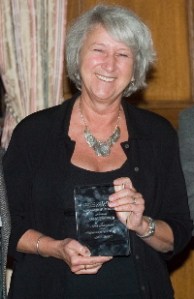
2005 William H. Flanigan Award for Distinguished Service as an ICPSR Official Representative
Ilona Einowski is the Director of User Services at the University of California Data Archive & Technical Assistance (UC DATA) at the University of California, Berkeley, where she has been the data archivist since 1979. She has served as the ICPSR Official Representative at Berkeley since 1983. Her involvement in ICPSR activities is extensive, and includes serving on the ICPSR Census Advisory Committee (1990 and 2000) and serving as a member of the ICPSR Review Committee (1995). She has been active in the International Association for Social Science Information Service and Technology (IASSIST) since 1979, and served on the IASSIST Administrative Committee from 1995-1998. She is the chair of the IASSIST International Outreach Action Group, coordinating efforts to provide funding for information professionals from developing economies to attend IASSIST conferences.
She is currently active in the development of the California Digital Library on-line data access system (Counting California) in conjunction with the Office of the President of the University of California, where her project responsibilities reflect her years of experience as metadata, numeric data, and XML specialist. Ilona has just finished serving on the ICPSR Council (2002-2005) during which time she made particularly insightful contributions to the growth of ICPSR in the areas of computing technology and service delivery, and membership development. Ilona has always been among that valuable core set of ORs, who are our most serious critics, and our most steadfast and loyal allies.
Chuck Humphrey
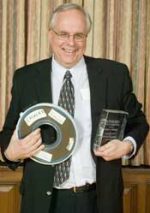
2005 William H. Flanigan Award for Distinguished Service as an ICPSR Official Representative
Chuck Humphrey has been the head of the Data Library at the University of Alberta since 1980. He was at the forefront of the general trend of moving data services from computing centers and academic departments into libraries. He has served on the ICPSR Council and as President of IASSIST. He was a founding member of CAPDU in the late 1980s. He was instrumental in establishing the Canadian Data Liberation Initiative (DLI) and has been Co-Chair of DLI’s External Advisory Committee since 1997. He helped create the curriculum for the DLI training program that teaches specific data services skills in regional workshops across Canada.
Chuck has actively lobbied for a Canadian National Data Archive since the early 1980s. In October 2000, he was appointed to serve on the Canadian National Data Archive Consultation, and was a major contributor to their two reports. In 2001, he assumed responsibility for the implementation and management of a Statistics Canada Research Data Centre (RDC) and he serves on the RDC National Coordinating Committee. In 2000, Chuck received the Canadian Association of Research Libraries Award for Distinguished Service to Research Librarianship.
In addition, Chuck is an active researcher. In 2004, he was appointed as a member of the National Consultation on Access to Scientific Research Data (NSCARD) and was a contributor to the findings of that investigation. He is a co-investigator on the New Canadian Children and Youth Survey. He has been a co-investigator on the multi-site Determinants of Research Utilization study. He is a collaborator on several Knowledge Utilization Studies Program (KUSP) projects and reports.
Since 1990, Chuck has taught the week-long workshop on providing social science data services at ICPSR and has hosted several workshops at OR and IASSIST meetings.
Ed Nelson
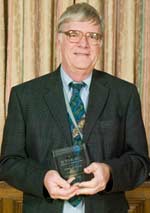
2005 William H. Flanigan Award for Distinguished Service as an ICPSR Official Representative
Ed Nelson has served as the OR for California State Fresno since 1976. From 1996 until 2000 he served on the ICPSR Council, and while on the Council was instrumental in the establishment of SIMI, the Site for Instructional Materials and Information. He continues to contribute to SIMI’s development, serving on the committee that oversees and coordinates its services, and is the author of one of its instructional modules, “Sociology of Religion: Exercises Using General Social Surveys, 2000-2002.”
Ed has played a pivotal role in SSRIC, Cal State University’s Social Science Research and Instructional Council. Originally formed in 1972 to coordinate CSU’s activities as the first of the ICPSR’s now 13 federations, SSRIC has, though its thrice-yearly meetings, its workshops, its website, and its annual Student Research Conference, built up a resource that has strengthened quantitative social science throughout the 23 campuses. Almost from the federation’s beginning, Ed has been its heart and soul. He has twice been chair of the federation council and continues to serve on its executive committee. He has played a central role in virtually all of the federation’s accomplishments, including the establishment of the Teaching Resources Depository. Most recently, he has helped put the federation’s budget on a more stable footing, and has played a critical role in redefining and expanding its mission with the development of new technologies such as ICPSR Direct.
Whether it has been negotiating with the Chancellor’s Office, obtaining grants, serving as our liaison with the California Poll’s Field Institute, traveling around the state on his own time putting on workshops for faculty, or authoring instructional materials for the Depository, Ed has been amazingly generous with both his time and wisdom.
Lennart Brantgärde

2003 William H. Flanigan Award for Distinguished Service as an ICPSR Official Representative
Data Archivist and Advocate of International Data Exchange and Training Opportunities, Lennart Brantgärde, the Director of the Swedish Social Science Data Service, served as the ICPSR Official Representative for the Swedish national membership since 1981. During that period he has been a staunch advocate of empirical social science. Lennart has been one of the principal conduits for the exchange of information and data between Sweden and the North American social science community. In addition, he has been a strong voice championing comparative, crossnational research as well as collaborative international studies.
Over these many years, Lennart has taken an especially proactive stance to foster advanced graduate education in the areas of quantitative methods and statistics. To that end, working through the Swedish Research Council, he has facilitated the financial support necessary to enable hundreds of Swedish scholars to travel and study in other nations. Chief among those destinations was always the ICPSR Summer Program, here in Ann Arbor. Rare was it that ICPSR did not have the opportunity to welcome to the Program a dozen or more outstanding Swedish scholars.
Over the years, Lennart visited Ann Arbor quite often, either as a participant in an ICPSR Council meeting or at an OR meeting. He has always been a source of sage advice and measured wisdom. ICPSR will miss his engaging company and camaraderie.
Ann Gray
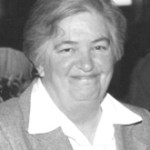
2001 William H. Flanigan Award for Distinguished Service as an ICPSR Official Representative
Ann Gray began her professional career in 1982 at the Institute for Research in Social Science at the University of North Carolina. In 1985 she became the Head of the Data Archive at the Cornell Institute for Social and Economic Research at Cornell University, where she was also the data contact person for Cornell’s membership in ICPSR. In the early 1990s, Cornell moved the role of Office Representative from the Government Department to the Institute and Ann became the OR. In 1994, she became a member of the ICPSR Council. In 1991, she was part of the OR Meeting program with a presentation on “Introducing Undergraduates to Quantitative Research: The Data Library Experience.” She has given presentations in other venues, such as the IASSIST and APDU meetings. In 2000 Ann moved to Princeton where the OR and data services reside within the university library and undergraduate research plays a large role. Her most recent publications are “Data Products, Secondary” in Encyclopedia of the U.S. Census, edited by Margo Anderson and others, and with Diane Geraci, “Complex Reference Services: Data Files for Social Research,” in The Reference Librarian.
Phil Sidel
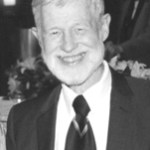
2001 William H. Flanigan Award for Distinguished Service as an ICPSR Official Representative
Phil Sidel began his professional career in the 1960s as a programmer at Columbia’s Bureau of Applied Social Research. In 1969, Carl established a Social Science Information Center at the University of Pittsburgh to assist social scientists in accessing data and using the computer for research. Phil became the director for the program and also became a Consortium OR. To handle the day-to-day work of providing data access, Phil established the position of “Data Archivist,” and he remained the OR or Co-OR until 2000. His most active years in that capacity were during the 1970s when the concept and operations of a data consortium were just developing. In the early 1990s, the University of Pittsburgh joined other institutions that had moved their ICPSR memberships from individual departments to university-wide units — computer centers and libraries. The center Phil directed became part of Computing and Information Services. There have been reorganizations since then, but Phil and the data archivist, now titled “Electronic Data Services Coordinator,” are still providing the same services, though in a much different technological environment.
Kathy Isaacson
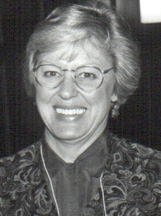
1999 William H. Flanigan Award for Distinguished Service as an ICPSR Official Representative
Kathy Isaacson has been the ICPSR Official Representative from Lawrence University since 1980. She holds the positions of Associate Professor, Reference Librarian, and Library Systems Coordinator at Lawrence, which is part of the Associated Colleges of the Midwest Federation. Acting as “hub” coordinator of the federated membership, Kathy was one of the first librarians to take on the role of OR. She earned her BA in American Institutions from University of Wisconsin – Madison and her Masters in Library Science from University of Wisconsin – Oshkosh.
Kathy thanks Judith Rowe for promoting the concept of librarians as data archive managers, and Chuck Humphrey and Ilona Einowski for running great workshops to help get her started. She also is indebted to Janet Vavra for technical help along the way.
Ann Janda

1999 William H. Flanigan Award for Distinguished Service as an ICPSR Official Representative
Ann Janda has served as the ICPSR Official Representative from Northwestern University since 1983. In the early 1980s she was editor of the Association for Computing Machinery Special Interest Group for Computer Human Interactionis newsletter, the SIGCHI Bulletin, and edited a volume of the groupis 1983 conference proceedings, Human Factors in Computing Systems. A data consultant in the Government Publications and Maps Department at the Northwestern University Library, Ann has been active in the International Association of Social Science Information and Services (IASSIST), serving on the IASSIST Administrative Committee and hosting the 2000 meeting, “Data in the Digital Library: Charting the Future for Social, Spatial and Government Data,” on the Northwestern campus.
Siegfried Vogt

1999 William H. Flanigan Award for Distinguished Service as an ICPSR Official Representative
Siegfried A. Vogt was the ICPSR Official Representative from Washington State University from 1978 until his retirement in 2001.*Dr. Vogt served as the Head of Social Science Collection Development, Reference Librarian, and Subject Specialist at WSU’s Holland Library from 1972 to 1991.* Vogt received his B.A. from Oregon State University, master’s degrees from the University of Vienna and the University of Idaho, and his Ph.D. (Political Science, 1972) from Washington State University.
JoAnn Dionne
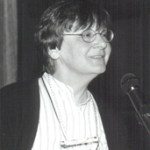
1997 William H. Flanigan Award for Distinguished Service as an ICPSR Official Representative
JoAnn Dionne served as Yale University’s Official Representative to ICPSR for 20 years, from 1977-1997. She was the first librarian elected to the ICPSR Council and served on that body (1987-1991) during one of the organization’s most stressful periods. JoAnn’s calm demeanor and objective during those stormy times. JoAnn also served on the ICPSR Executive Director Search Committee in 1991. Her accomplishments as an Official Representative and her outstanding contributions to ICPSR make her a natural recipient of this distinguished award.
Judith Rowe
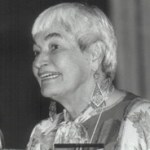
1997 William H. Flanigan Award for Distinguished Service as an ICPSR Official Representative
Judith Rowe was the first non-faculty Official Representative elected to the ICPSR Council. She brought decades of knowledge of data, the statistical system, computing, universities, and archives to Council, as well as a deep love for and concern with the health of ICPSR. She served ICPSR during some of its most challenging years. She taught most of us how to archive data, to provide high-quality user support, and to find the data, wherever they might be. Judith was also a leader nationally and internationally through her involvement with organizations such as APDU, COPAFS, and IASSIST. Her advice and counsel and wisdom were instrumental to the continued development of ICPSR.
Bjorn Henrichsen

1995 William H. Flanigan Award for Distinguished Service as an ICPSR Official Representative
The 1995 Flanigan Award was given to Bjorn Henrichsen, Director of the Norwegian Social Science Data Services in Bergen, Norway. Henrichsen had served an OR since 1978 and in his capacity as Director of NSD he built up the data holdings of his organization in many areas. He also oversaw the development of the popular teaching and analysis package NSDstat.
Miller Award Winners
Robert M. Groves
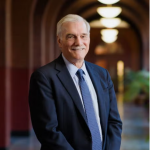
2025 Warren E. Miller Award for Meritorious Service to the Social Sciences
Robert M. Groves, Interim President at Georgetown University, previously served as Georgetown’s Executive Vice President and Provost from 2012 to 2024 and is the Gerard J. Campbell, S.J. Professor in the Math and Statistics and Sociology Departments. A social statistician, Groves researches social and behavioral influences on statistical data quality, survey participation, and privacy concerns regarding statistical agencies. Before Georgetown, he directed the U.S. Census Bureau from 2009 to 2012, following roles at the University of Michigan and the University of Maryland. Groves has authored or co-authored seven books, including the influential “Survey Errors and Survey Costs,” named one of the 50 most important survey research books by the American Association of Public Opinion Research. His other books have also received national awards. An elected member of the National Academy of Sciences, National Academy of Medicine, and other prestigious organizations, he chairs the Board of Directors of the Pew Research Center and holds degrees from Dartmouth College and the University of Michigan.
Katharine G. Abraham

2023 Warren E. Miller Award for Meritorious Service to the Social Sciences
Katharine G. Abraham is a Distinguished University Professor at the University of Maryland. Her published research includes papers on the work and retirement decisions of older Americans; how government policies affect employers’ choices concerning employment and hours over the business cycle; the effects of financial aid on the decision to attend college; discrepancies in alternative measures of employment, wages and hours; and the measurement of economic activity. Abraham served as Commissioner of the Bureau of Labor Statistics from 1993 through 2001 and as a Member of the President’s Council of Economic Advisers from 2011 through 2013. She currently serves on standing academic advisory committees convened by the Congressional Budget Office, the Bureau of Economic Analysis, and the Federal Reserve Bank of Chicago. Abraham is a Research Associate of the National Bureau of Economic Research and a Research Fellow of the IZA, a member of the National Academy of Sciences and of the American Academy of Arts and Sciences, a Distinguished Fellow of the American Economic Association, and an elected Fellow of the American Statistical Association and of the Society of Labor Economists. She received her PhD in economics from Harvard University in 1982 and her BS in economics from Iowa State University in 1976.
Ron Jarmin

2021 Warren E. Miller Award for Meritorious Service to the Social Sciences
Ron S. Jarmin, acting director, deputy director, and chief operating officer of the U.S. Census Bureau, performed the nonexclusive functions and duties of the director from July 2017 to January 2019 and previously served as the associate director for economic programs. He led the team for the 2017 Economic Census, overseeing a move to 100 percent Internet data collection and leveraging enterprise investments to minimize system, application, and dissemination costs. Data products from the economic census provide the foundation for key measures of economic performance, including the nation’s gross domestic product.
From 2011 to 2016, Jarmin served as the assistant director for research and methodology. He oversaw a broad research program in statistics, survey methodology, and economics aimed at improving economic and social measurement within the federal statistical system. Since beginning his career at the Census Bureau in 1992, he has also served as the chief economist, chief of the Center for Economic Studies, and a research economist.
Jarmin holds a PhD in economics from the University of Oregon. An elected fellow of the American Statistical Association, he has published papers in the areas of industrial organization, business dynamics, entrepreneurship, technology and firm performance, urban economics, data access, and statistical disclosure avoidance.
Raj Chetty

2019 Warren E. Miller Award for Meritorious Service to the Social Sciences
Raj Chetty, William A. Ackman Professor of Economics at Harvard University, specializes in public economics. Some of Chetty’s recent papers focus on equality of opportunity in the United States, and the long-term impact of teachers on students’ performance. Chetty was offered tenure at Harvard University at the age of 28 and accepted at 29, becoming one of the youngest tenured faculty in the history of Harvard’s economics department. He is a recipient of the John Bates Clark Medal and a 2012 MacArthur Fellow. Currently, he is also an advisory editor of the Journal of Public Economics. Chetty will deliver the ICPSR 2019 Biennial Meeting Keynote, speaking about “Improving Equality of Opportunity in America: New Insights from Big Data.”
Judith Torney-Purta
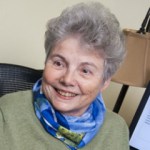
2019 Warren E. Miller Award for Meritorious Service to the Social Sciences
Judith Torney-Purta is Professor Emerita of Developmental Science and Educational Psychology at the University of Maryland. Among her many roles, she was co-editor of the Journal of Applied Developmental Psychology and is a member of the US National Committee for the International Union of Psychological Science. She was elected to the National Academy of Education in 2014 and is a Fellow of the American Educational Research Association (AERA) and of the American Psychological Association (APA); she won the APA Award for Distinguished Contributions to the International Advancement of Psychology. Torney-Purta was the senior author of a book reporting the results of the first IEA (International Association for the Evaluation of Educational Achievement) Civic Education Study in 1975 and the author or editor of five books (as well as many chapters and articles) on the second IEA Civic Education Study (which collected data from 140,000 adolescents in 29 countries in 1999-2000). Torney-Purta spearheaded the deposit of these data at ICPSR. She was made an Honorary Member of the IEA General Assembly in 2001 (the first woman to be so honored). Torney-Purta was instrumental in the creation of ICPSR’s Civic Learning, Engagement, and Action Data Sharing (CivicLEADS) project and serves on CivicLEADS’ advisory committee.
Julia Lane

2017 Warren E. Miller Award for Meritorious Service to the Social Sciences
Julia Lane (Ph.D, Economics, University of Missouri) is a Professor at the Center for Urban Science and Progress (CUSP), and at NYU’s Wagner Graduate School of Public Service. She also serves as a Provostial Fellow for Innovation Analytics and Senior Fellow at NYU?s GovLab. As part of the CUSP team, Lane works with the research team to build the CUSP Data User Facility.
Previously, Lane was a Senior Managing Economist and Institute Fellow at American Institutes for Research. In this role, Lane established the Center for Science of Science and Innovation Policy Program, and co-founded the Institute for Research on Innovation and Science (IRIS) at the University of Michigan. Lane has held positions at the National Science Foundation, The Urban Institute, The World Bank, American University and NORC at the University at Chicago.
Lane has led many initiatives, including co-founding the UMETRICS and STAR METRICS programs at the National Science Foundation. She conceptualized and established a data enclave at NORC/University of Chicago. This provides a confidential, protected environment within which authorized researchers can access sensitive microdata remotely and provides data producers with a secure dissemination platform. She also initiated and led the creation and permanent establishment of the Longitudinal Employer- Household Dynamics Program at the U.S. Census Bureau. This program began as a small two year ASA Census Bureau fellowship and evolved into the first large-scale linked employer- employee dataset in the United States. It is now a permanent Census Bureau program with appropriated funds of $11 million per year.
Lane has published over 70 articles in leading economics journals, and authored or edited ten books. She is an elected fellow of the American Association for the Advancement of Science and a fellow of the American Statistical Association. She has been the recipient of over $50 million in grants; from foundations such as the National Science Foundation, the Alfred P. Sloan Foundation, the Ewing Marion Kauffman Foundation, the MacArthur Foundation, the Russell Sage Foundation, the Spencer Foundation, the National Institutes of Health; from government agencies such as the Departments of Commerce, Labor, and Health and Human Services in the U.S., the ESRC in the U.K., and the Department of Labour and Statistics New Zealand in New Zealand, as well as from international organizations such as the World Bank. Lane is the recipient of the 2014 Julius Shiskin award and the 2014 Roger Herriot award. Lane received her Ph.D. in Economics and Master?s in Statistics from the University of Missouri.
Robert McCaa

2017 Warren E. Miller Award for Meritorious Service to the Social Sciences
Robert McCaa (ICPSR ’69) is research professor at the Minnesota Population Center and Professor emeritus, Department of History, University of Minnesota. He received the PhD in History from the University of California Los Angeles in 1978. His academic specialties include historical demography, Latin American history, history of smallpox, and world census microdata research.
In 1989, as a Fulbright fellow Bob began a campaign to liberate census microdata, first in Latin America and then the world. A decade later, in partnership with Steven Ruggles, IPUMS-International was born. The project’s Memorandum of Cooperation provides the legal authority for National Statistical Agencies to entrust anonymized microdata in perpetuity to the Minnesota Population Center. Endorsed by more than 100 countries encompassing over 90% of the world’s population, the agreement charges the MPC to manage access to the microdata by researchers worldwide free of cost. Thanks to on-going major funding by the National Science Foundation and the National Institutes of Health, some 300 high precision samples totaling over 600 million person records are currently integrated into the IPUMS with more added each year. Bob’s recent publications are focused on the questions and concerns of National Statistical Offices about what happens to the microdata once they are entrusted to the MPC. His many publications include:
- The Census in global perspective and the coming microdata revolution. Scandinavian Population Studies, vol. 13 (2002). Co-author: Steven Ruggles.
- Statistical coherence of primary schooling in IPUMS-International integrated population samples for China, India, Vietnam, and ten other Asia-Pacific countries. Chinese Journal of Sociology. doi: 10.1177/2057150X15593710 Co-authors: Lara Cleveland, Patricia Kelly-Hall, Steven Ruggles, and Matthew Sobek.
- Human Development Index-like Small Area Estimates for Africa computed from IPUMS-International integrated census microdata.Journal of Human Development and Capabilities, DOI 10.1080/19452829.2014.956300. Co-authors: I�aki Permanyer, Albert Esteve, and Joan Garcia.
- Controlled shuffling, statistical confidentiality and microdata utility: a successful experiment with a 10% household sample of the 2011 population census of Ireland for the IPUMS-International database. In J. Domingo-Ferrer (Ed.): Privacy in Statistical Data 2014, LNCS vol 8744, pp. 326-337. Co-authors: Krish Muralidhar, Rathindra Sarathy, Michael Comerford, and Albert Esteve.
- Creating Statistically Literate Global Citizens: The Use of IPUMS-International Integrated Census Microdata in Teaching”. Statistical Journal of the IAOS (International Association of Official Statisticians), 27(2011). Co-authors: Ann Meier and David Lam.
- The Nahua calli of ancient Mexico: household, family, and gender. Continuity and Change, 18:1 (2003), 23-48.
- Missing millions: the demographic costs of the Mexican Revolution. Mexican Studies/Estudios Mexicanos, 19:2(Summer 2003), 367-400.
- Paleodemography of the Americas: From Ancient Times to Colonialism and Beyond,” in Richard H. Steckel and Jerome C. Rose (eds.), The Backbone of History: Health and Nutrition in the Western Hemisphere, New York: Cambridge University Press. 2002.
- Spanish & Nahuatl Views on Smallpox and Demographic Catastrophe in Mexico,” Journal of Interdisciplinary History, 25:3 (Winter 1995), 397-431.
- Isolation or Assimilation? A Log-linear Interpretation of Australian Marriages, 1947-1986. Population Studies 43:1 (March 1989), 155-162.
- Marriage and Fertility in Chile: Demographic Turning Points in the Petorca Valley, 1840-1976. Dellplain Latin American Series, Westview Press, Boulder, Co. 1983.
James Jackson
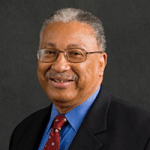
2015 Warren E. Miller Award for Meritorious Service to the Social Sciences
James S. Jackson (Ph.D. Psychology, Wayne State University) was Director of the University of Michigan’s renowned Institute for Social Research (ISR) from 2005 to 2015. Jackson is a research professor at the Research Center for Group Dynamics, ISR, Professor of Afroamerican and African Studies and the Daniel Katz Distinguished University Professor of Psychology. Jackson is a former member of the Advisory Council to Director, NIH and was recently appointed by the Obama Administration to the National Science Board. His research efforts include carrying out a number of national and international surveys of black populations and several studies of Racism and Xenophobia in Europe. His teaching centers on the intersection of social and biological factors in physical and mental health, racial and ethnic group influences and discrimination and racism in an international context.
Jackson’s research focuses on issues of racial and ethnic influences on life course development, attitude change, reciprocity, social support, and coping and health among blacks in the Diaspora. He is past Director of the Center for Afroamerican and African Studies and past national president of the Association of Black Psychologists, Society for the Psychological Study of Social Issues, and the Consortium of Social Science Associations. He is Fellow of American Academy of Arts & Sciences and the W.E.B. DuBois Fellow of the American Academy of Political and Social Sciences. He is the recipient of the a Presidential Citation by the American Psychological Association, for Dedicated Research, Scholarship, Service, and Leadership to the Discipline of Psychology, and the James McKeen Cattell Fellow Award for Distinguished Career Contributions in Applied Psychology, Association for Psychological Sciences. He is an elected a member of the National Academy of Medicine, National Academies of Sciences.
He is currently directing the most extensive social, political behavior, and mental and physical health surveys on the African American and Black Caribbean populations ever conducted, “The National Survey of American Life,” “The Family Survey across Generations and Nations,” and the National Science Foundation and Carnegie Corporation supported “National Study of Ethnic Pluralism and Politics (2006-2014).” Publications include “African Americans in a Diversifying Nation,” (National Policy Association 2000) and “Race and Unhealthy Behaviors: Chronic Stress, the HPA Axis, and Physical and Mental Health Disparities over the Life Course” (American Journal of Public Health 2010). He serves on several Boards for the National Research Council and the National Academies of Science and is a founding member of the “Aging Society Research Network” of the MacArthur Foundation.
Gary King

2015 Warren E. Miller Award for Meritorious Service to the Social Sciences
Gary King is an Albert J. Weatherhead III University Professor of Government at Harvard University and director of Harvard’s Institute for Quantitative Social Science.
King (Ph.D., Political Science, University of Wisconsin-Madison) is one of only 24 individuals with Harvard’s most distinguished faculty position. He has been elected Fellow of the National Academy of Sciences (2010), American Statistical Association (2009), Fellow of the American Association for the Advancement of Science (2004), Fellow of the American Academy of Arts and Sciences (1998), Fellow of the Society for Political Methodology (2008), Fellow of the American Academy of Political and Social Science (2004), President of the Society for Political Methodology (1997-1999), and Vice President of the American Political Science Association (2003-2004). He was also appointed a Fellow of the Guggenheim Foundation (1994-1995), Visiting Fellow at Oxford (1994), and Senior Science Advisor to the World Health Organization (1998-2003). King has won the Warren Miller Prize for the best article published in Political Analysis (2008), the McGraw-Hill Award (2006), the Durr Award (2005), the Gosnell Prize (1999 and 1997), the Outstanding Statistical Application Award (2000), the Donald Campbell Award (1997), the Eulau Award (1995), the Mills Award (1993), the Pi Sigma Alpha Award (2005, 1998, and 1993), the APSA Research Software Award (2005, 1997, 1994, and 1992), the Okidata Best Research Software Award (1999), and the Okidata Best Research Web Site Award (1999), among others. His more than 150 journal articles, 20 open source software packages, and 8 books span most aspects of political methodology, many fields of political science, and several other scholarly disciplines.
King’s work is widely read across scholarly fields and beyond academia. He was listed as the most cited political scientist of his cohort; among the group of “political scientists who have made the most important theoretical contributions” to the discipline “from its beginnings in the late-19th century to the present;” and on ISI’s list of the most highly cited researchers across the social sciences. His work on legislative redistricting has been used in most American states by legislators, judges, lawyers, political parties, minority groups, and private citizens, as well as the U.S. Supreme Court. His work on inferring individual behavior from aggregate data has been used in as many states by these groups and in many other practical contexts. His contribution to methods for achieving cross-cultural comparability in survey research have been used in surveys in over eighty countries by researchers, governments, and private concerns. King led an evaluation of the Mexican universal health insurance program, which includes the largest randomized health policy experiment to date. The statistical methods and software he developed are used extensively in academia, government, consulting, and private industry. King developed the Virtual Data Center, a precursor to The Dataverse Network. That software benefited the social science infrastructure by facilitating the public distribution of persistent, authorized, and verifiable data. The Dataverse Network, also under King’s direction, is an open-source application for publishing, referencing, extracting and analyzing research data. The main goal of the Dataverse Network is to solve the problems of data sharing through building technologies that enable institutions to reduce the burden for researchers and data publishers and to incentivize them to share their data.
He has served on 30 editorial boards; on the governing councils of the American Political Science Association, ICPSR, the Society for Political Methodology, and the Midwest Political Science Association; and on several National Research Council and National Science Foundation panels. King’s research has been supported by the National Science Foundation, the Centers for Disease Control and Prevention, the World Health Organization, the National Institute of Aging, the Global Forum for Health Research, and centers, corporations, foundations, and other federal agencies.
For more information, see http://GaryKing.org.
Kathleen Mullan Harris

2013 Warren E. Miller Award for Meritorious Service to the Social Sciences
Kathleen Mullan Harris (Ph.D., University of Pennsylvania) is the James Haar Distinguished Professor of Sociology at the University of North Carolina at Chapel Hill and an adjunct professor of Public Policy. She is the director of the National Longitudinal Study of Adolescent Health (Add Health) at the Carolina Population Center, a position she has held since 2004; she was deputy director for Add Health from 1998-2004. The Add Health study involves more than 20,000 teenagers who are being followed into young adulthood. In addition, Harris was interim director of the CPC from 2010-2011.
Her research interests include adolescent health and risk behavior, nonmarital childbearing, immigrant children, transition to adulthood, family formation, poverty and social policy, and social inequality.
Under her leadership, Add Health is expanding its biological data collection to connect biological and social sciences. Add Health has become a global data resource for over 10,000 researchers; most of them work in North America, but many others are in Asia, Australia, Europe, and South America. Add Health researchers have obtained more than 500 independently funded research grants and produced nearly 2,000 peer-reviewed research articles that appear in over 300 different journals. Since the Wave IV Program Project began in 2006, there have been 1,000 publications. In addition, 19 books, 80 reports, 75 book chapters, and more than 450 master’s theses and doctoral dissertations are based on Add Health data.
Harris has served as president of the Population Association of America and as a member of the Sociological Research Association. She also participates in several other scholarly and professional organizations, and advisory boards. She received the Rachel Rosenfeld Graduate Student Association Award for Excellence in Mentoring at University of North Carolina, and the Clifford C. Clogg Award for Early Career Achievement in Population Studies and Demography from the Population Association of America and the Population Research Institute of Pennsylvania State University. She is a member of the U.S. Census Bureau’s National Advisory Committee on Racial, Ethnic and Other Populations (NAC).
She has served on the editorial board of Social Forces since 1990 and on the editorial board of Biodemography and Social Biology since 2006. Also, she was deputy editor of Demography from 1998-2001. She is an occasional reviewer for several professional journals. Harris has more than 65 publications and an extensive list of invited talks and presentations.
Harris was a Council member of the ICPSR from 2006-2010. She also was a member of the ICPSR Council Strategic Planning Committee from 2007-2008.
She has received funding for her research from several federal agencies including the National Science Foundation, the National Institute of Child Health and Human Development, and the National Institute of Aging, as well as from foundations including the Russell Sage Foundation and the W.T. Grant Foundation.
Janet Box-Steffensmeier

2013 Warren E. Miller Award for Meritorious Service to the Social Sciences
Janet M. Box-Steffensmeier (Ph.D., University of Texas) is the Vernal Riffe Professor of Political Science, Distinguished University Scholar, and professor of Sociology at Ohio State University (courtesy appointment), where she directs the Program in Statistics and Methodology (PRISM). She also founded the Visions in Methodology (VIM) workshops, a three-day session funded by the National Science Foundation (NSF) that focuses on political methodology and includes scholarly presentations on methodological and substantive topics. VIM helps connect women in the field by providing opportunities for scholarly progress and professional mentoring. Additionally, she team-taught the first Committee on Institutional Cooperation (CIC) interactive video (iTV) course in 1996; she continues to offer iTV courses through the program. In addition, Box-Steffensmeier received the 2013 Political Methodology Career Achievement Award from the Political Methodology Section of the American Political Science Association (APSA), which recognizes intellectual accomplishment and service to the profession in the field of Political Methodology.
Box-Steffensmeier’s research focuses on methodology and American politics. She is one of the top political methodologists working on time-series analysis and publishing path-breaking research on error-correction models, fractional integration, and ARFIMA models. She has published 5 books and 12 book chapters, as well as more than 40 articles in highly ranked political journals including American Political Science Review, American Journal of Political Science, and Journal of Politics. Recently, she secured NSF funding for an initiative to mentor high school teachers in statistics instruction.
She serves as an associate editor for the Society for Political Methodology journal Political Analysis, and previously was an associate editor of the American Journal of Political Science. Box-Steffensmeier served as president of the Midwest Political Science Association and the Society for Political Methodology, as well as treasurer of the APSA. She twice has received the Harold F. Gosnell Prize for the best work in political methodology, and the Emerging Scholar Award of the Elections, Public Opinion, and Voting Behavior Section of the APSA. She was an inaugural Fellow of the Society for Political Methodology.
Box-Steffensmeier serves as the ICPSR Official Representative at Ohio State University and also served on the ICPSR Summer Program Advisory Committee 2007-2010. The Box-Steffensmeier Graduate Student Award (for attendance at ICPSR’s Summer Program for one or both of the four-week sessions offered yearly) — given annually by the Society for Political Methodology and ICPSR — is named after her in recognition of her contributions to political methodology and her support of women in the field.
Tom W. Smith

2011 Warren E. Miller Award for Meritorious Service to the Social Sciences
Tom W. Smith (Ph.D. University of Chicago) is the Senior Fellow and Director, National Opinion Research Center (NORC) at the University of Chicago, Center for the Study of Politics and Society. He is an internationally recognized expert in survey research specializing in the study of societal changes and survey methodology. Since 1980, Smith has served as Director of the General Social Survey (GSS), one of NORC’s most visible projects and one of the nation’s most heavily utilized datasets. This is the largest and longest-term project supported by the Sociology program of the National Science Foundation. The mission of the GSS is to monitor changes and consistencies in American society and to develop models to explain change (or stability). The National Science Foundation, in celebrating its 60th anniversary in 2010, identified 60 major contributions to science that have received NSF support. The GSS was included on that list.
He is also co-founder and has been the Secretary General (1977-2003) of the International Social Survey Program which is the largest cross-national collaboration in t he social sciences. Additionally, Smith has been principal investigator on the National Gun Policy Surveys, the National Tragedy Study, the International Mental Health Stigma Study, and the National Paid Sick Days Study.
He currently serves as president of the World Association for Public Opinion Research.
Smith is frequently consulted and quoted by the news media on such diverse topics as survey methodology, American sexual behavior, inter-group relations, confidence in institutions, happiness, religion, guns, U.S. spending priorities, and voter behavior. He is a prolific writer (over 450 scholarly papers), analyzing and publishing the results of his studies in peer reviewed journals and NORC-published reports aimed at students, scholars and policymakers. He serves as a referee for several peer reviewed journals, including Public Opinion Quarterly, Health Affairs, Demography, and Social Methodology, and he is a member of the editorial board of the International Journal of Public Opinion Research.
In addition to his extensive publication and public speaking record, Smith has been the recipient of the following awards: Demographic Diamond Designate, American Demographics; Eastern Sociological Society Award for Distinguished Contributions to Sociology; American Association for Public Opinion Research Award for Exceptionally Distinguished Achievement; AAPOR Innovators Award; and Worcester Prize, International Journal of Public Opinion Research.
Kevin Schürer

2011 Warren E. Miller Award for Meritorious Service to the Social Sciences
Kevin Schürer is Pro-Vice Chancellor (Research and Enterprise) at the University of Leicester and will hold a chair in the Centre for English Local History. From 2000-2010, he served as Director of the UK Data Archive. Prior to that, he worked for several years as a member of the internationally-renowned Cambridge Group for the History of Population and Social Structure, University of Cambridge. Following this, he moved to a teaching position at the Department of History, University of Essex, also serving as Research Director and Director of the Centre for Local and Regional History.
Schürer is an Academician of the Academy for the Social Sciences, a Fellow of the Royal Statistical Society and the Royal Geographical Society, and a Senior Member of Wolfson College, Cambridge. He has served on behalf of the Economic and Social Research Council (ESRC) and Arts & Humanities Research Council as the UK representative for the European Strategy Forum for Research Infrastructure working group in Social Science and Humanities and was previously President of the Council of European Social Science Data Archives. He is also a member of the British Library’s Advisory Council, the Research Libraries Network Advisory Committee, and several other national and international committees.
He recently acted as P.I. on a EC-funded project seeking to create a more fully integrated social science data infrastructure across Europe via the establishment of a new European Research Infrastructure Consortium. And in 2009, he received a major award from the ESRC to create a standardized and harmonized version of the censuses for Great Britain for 1851 to 1911 (the I-CeM project), working with a commercial partner to create one of the largest historical data resources in the world. His research interests include: historical demography and household structure; internal migration in Victorian and Edwardian England; historical methodology; data enhancement databases; data archiving and digital preservation, and onomastics, local history and regional identity.
His publications include Surveying the people (1992), The use of occupations in historical analysis (1992), A guide to historical data files in machine-readable form (1992); Victorian communities in census enumerator’s books (1996), and Changing family size in England and Wales: Place, class and demography, 1891-1911 (2001) as well as a number of chapter and journal articles.
ICPSR Council meetings often include international visitors who represent a national membership. Schürer has been a frequent participant in ICPSR Council meetings over the years in that capacity.
Steven Ruggles

2009 Warren E. Miller Award for Meritorious Service to the Social Sciences
Steven Ruggles is the Distinguished McKnight University Professor of History at the University of Minnesota and the Director of the Minnesota Population Center. He received his PhD from the University of Pennsylvania in 1984. His academic specialties include U.S. census research, U.S. social history, historical demography, and history of the family.
Christened “The King of Quant” by Wired Magazine in 2003, Steve has emerged as one of the most widely known historical demographers in the world. Colleagues describe him as a “scholar of astonishing breadth of knowledge and productivity whose work has reshaped the field of historical demography and has had a profound effect on the fields of sociology, economics and history.”
Steve has helped raise approximately $65 million in research funds to create, improve and disseminate population data. At the Minnesota Population Center, he and his team have collected, coded, computerized, systematized and delivered to scholars the individual records of millions of Americans going back to 1850. The Integrated Public Use Microdata Series or IPUMS is considered one of the most valuable databases of all time and has made the University of Minnesota one of the largest social science data distributors in the world. Steve’s talent for entrepreneurship has resulted in a diversified set of resources for demographic research:
- IPUMS International, harmonized data for 1960 forward, covering 279 million people in 130 censuses from around the world
- IPUMS USA, harmonized data on people in the U.S. census and American Community Survey, from 1850 to the present
- IPUMS CPS, harmonized data on people in the Current Population Survey, every March from 1962 to the present
- North Atlantic Population Project, complete-count data from the 1800s censuses of Canada, Great Britain, Norway, Sweden, and the U.S.
- National Historic Geographic Information System, tabular U.S. census data and GIS boundary files from 1790 to 2000
- Integrated Health Interview Series, annual harmonized data on people in the U.S. National Health Interview Survey from the 1960s to the present
- American Time Use Survey, annual harmonized data from 2003 forward on how U.S. adults divide their time among activities
Steve is also known as an extraordinary teacher who has had a profound impact on undergraduate and graduate education.
J. Merrill Shanks
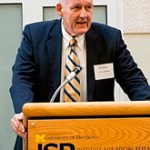
2009 William H. Flanigan Award for Distinguished Service as an ICPSR Official Representative
Merrill Shanks is currently Professor of Political Science, Director of the Social Science Computing Laboratory at the University of California, and Associate Chief Information Officer for the Arts, Humanities, and Social Sciences at the University of California, Berkeley. These titles only hint at Merrill’s overall contributions to the social sciences and to infrastructure building across the decades, which have had a profound impact on the field.
Merrill’s service to the social sciences actually began in the 1960s in parallel with ICPSR’s beginnings. He joined the technical staff of the recently created Consortium, ICPR, in January of 1963 and worked as a lecturer and advisor for student data analyses in the Summer Program from 1964 through 1967. During this period he was also responsible for “cleaning” data from the 1952, 1956, and 1960 national election surveys. To expedite these tasks, he developed initial software for cleaning data and creating “machine-readable” codebooks. With Lutz Erbring, he initiated plans for an “interactive” transposed-file statistical system, which would later become the Survey Documentation and Analysis online analysis software, or SDA.
In 1970 Merrill received his PhD from the University of Michigan and became Assistant Professor and Director of the Berkeley Survey Research Center. During this time Merrill was a principal advocate and committee member for the creation of a central IT organization at Berkeley, and he initiated demonstration software for Computer-Assisted Telephone Interviewing (CATI). He also served as co-investigator for the 1972 National Election Study, and was a founding Member of the NES Board of Overseers, on which he served from 1976 to 1985.
During the 1980s Merrill published major essays with Warren Miller on the elections of 1980, 1984, and 1988. As the founding Director of the Computer-assisted Survey Methods (CSM) Program, Merrill moved it to central IT at Berkeley and created an external consortium-type Association to support continuing CSM development. CSM developed successive versions of the Computer-Assisted Survey Execution System (CASES).
In 1996, Merrill completed The New American Voter with Warren Miller, featuring the 1992 election. Merrill served as the founding Chair of the Governing Committee for the Data Documentation Initiative (DDI) beginning in 1995.
More recently, Merrill has served as Principal Investigator for the Public Agendas and Citizen Engagement Survey (PACES) and has completed several PACES-based conference papers and NES-based extensions of The New American Voter. He is preparing a comprehensive book on “policy-related foundations of electoral decisions.”
Norval Glenn
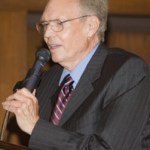
2007 Warren E. Miller Award for Meritorious Service to the Social Sciences
Norval Glenn was a major influence in moving ICPSR into the field of sociology in the early 1980s. Prior to that, the organization was viewed as mostly of interest to political scientists. Norval (along with the late Tad Blalock) helped recruit data deposits from many prominent sociologists on the topics of family, life course, and marriage. Norval played a major role in adding the “S” to the former ICPR, and helping to make the organization truly multidisciplinary. He served on the ICPSR Council during this period, and served as an Associate Director from 1985 to 2000. He has had a long and distinguished career as a researcher, methodologist, and teacher.
Dr. Glenn is the Ashbel Smith Professor of Sociology and the Stiles Professor in American Studies at University of Texas. His teaching and research interests relate to the family (especially marriage), aging and the life course, social and cultural change, and methods of survey research and data analysis. Several recent publications deal with the relationship between social science and public policy, the state of American marriage, optimal marital matching, and the relationship of age at marriage to marital success.
Glenn has also contributed significantly to the area of social science methodology, producing several recent publications about cohort analysis, including a chapter in the Handbook of Aging and the Life Course and an extensively revised edition of his Sage Series titled, Quantitative Methods in the Social Sciences.
In addition to his numerous professional memberships in associations such as the Population Association of America and American Sociological Association, Dr. Glenn has held editorial and advisory positions in publications such as Social Science Quarterly, Social Science Research, and the Journal of Family Issues.
Barbara Everitt Bryant
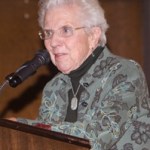
2007 Warren E. Miller Award for Meritorious Service to the Social Sciences
Barbara Everitt Bryant is Research Scientist Emerita at the University of Michigan School of Business, and recently retired as Managing Director of the American Customer Satisfaction Index (ACSI) within the National Quality Research Center at the U-M Business School. Her career in public opinion, basic and applied demographics, and marketing has spanned nearly forty years, and has included stints in both the private and public spheres. From 1970-1989, she held positions with Market Opinion Research (now MORPACE, International) in Detroit, where she directed major national survey projects. Included among the latter were three surveys for U.S. Presidential commissions: the President’s Commission on Observance of International Women’s year (President Ford), the President’s Commission on World Hunger (President Carter), and the President’s Commission on Americans Outdoors (President Reagan).
Dr. Bryant resigned as Senior Vice President at Market Opinion Research in 1989 to become Director of the U.S. Bureau of the Census, Department of Commerce. She was the first woman Director in the Bureau’s 200-year history, and directed the 1990 decennial Census. While generally praised for its accuracy, this Census (like previous modern censuses in the U.S.) struggled with the problem of an undercount of minority population groups. Under Bryant’s leadership, Bureau statisticians devised scientific means of adjusting the 1990 Census figures for undercount; Bryant endorsed these methods (which became politically controversial), and oversaw the production of adjusted 1990 Census figures. Ultimately, the Secretary of Commerce refused to officially release the adjusted counts and disapproved of their use in Federal and state population-driven programs and entitlements. (Bryant directed that a copy of these adjusted 1990 Census figures be deposited with ICPSR, for preservation as part of the historical record.)
Bryant served as Census Director until 1993, when she returned to Michigan to become Research Scientist at the University of Michigan. Her contributions to the social sciences are prodigious, as enumerated in three books and dozens of scientific articles. Her public service positions have included a vice presidency of the American Marketing Association, membership on the Board of the Roper Center for Public Opinion Research (1993-2001), and as a Fellow of the American Statistical Association. She has contributed as a guest lecturer in ICPSR’s Summer Training Workshops on the Decennial Census, and initiated the archiving of the ACSI surveys with ICPSR.
Kent Jennings
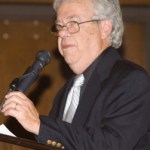
2007 Warren E. Miller Award for Meritorious Service to the Social Sciences
Kent Jennings was one of the cofounders of ICPR in 1963. If the election studies were the first major data collection in the archive, it is fair to say that the Jennings political socialization (panel) studies were the second most important contribution to our holdings in the field of political science.
Professor Jennings specializes in the study of political socialization and public opinion, gender and politics, political participation, and research design and data collection. He was a faculty member in the Political Science Department and a researcher at the Institute for Social Research at the University of Michigan from 1963-81. In addition, Jennings served as the first director of the (then) Survey Archive at ICPR. From 1984 to 1996, he held joint faculty appointments at both the University of California, Santa Barbara and the University of Michigan. Jennings has been a Visiting Scholar or Professor at the University of Oregon, Tilburg University (the Netherlands), University of California, Los Angeles, and Arizona State University, where he was the first Barry Goldwater Professor of American Institutions. In addition to having been a Guggenheim Fellow and a Fellow at the Center for Advanced Study in the Behavioral Sciences and the Netherlands Institute for Advanced Study in the Behavioral Sciences, he has received research grants from the Ford Foundation, the Russell Sage Foundation, the National Science Foundation, and the National Institute of Mental Health.
Professor Jennings was elected to the American Academy of Arts and Sciences in 1982. He served as President of the International Society of Political Psychology in 1989-90 and as President of the American Political Science Association in 1997-98. He has published over sixty articles in leading scholarly journals and is the author or coauthor of the following books: Community Influentials, The Image of the Federal Service, The Political Character of Adolescence, Governing American Schools, Generations and Politics, Parties in Transition, and Continuities in Political Action. His current research interests concern the longitudinal analyses of political orientations, gender and politics, and mass public participation.
Hal Winsborough
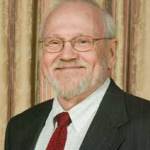
2005 Warren E. Miller Award for Meritorious Service to the Social Sciences
Hal Winsborough is one of the great institution-builders of the social sciences. He was one of the key figures behind the growth and development of the Population Studies Center at Duke University, the Center for Demography and Ecology (CDE) at the University of Wisconsin, and the University of Wisconsin Survey Center.
From the outset Hal recognized the importance of access to computing infrastructure. After obtaining one of the first NICHD population center infrastructure grants in 1971, Hal purchased a small mainframe computer. He then organized a computing cooperative at CDE that provided free access to all researchers affiliated with the center, with equal priority given to students and faculty alike. In addition, Hal was among the earliest people to recognize and exploit the potential of the 1960 and 1970 public use microdata samples.
As an ICPSR council chair and Interim Director between 1998 and 2001, Hal orchestrated critical changes that had profound consequences for the future of the organization and for social science infrastructure generally. Most importantly, he launched a battle of independence of ICPSR from the Center for Political Studies, which gave ICPSR much greater influence within ISR.
Jerome Clubb
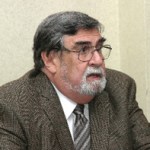
2003 Warren E. Miller Award for Meritorious Service to the Social Sciences
Jerome Clubb, former Director of ICPSR, received the Warren Miller Award for Meritorious Service to the Social Sciences. Historian, Social Scientist, and Architect of Institutional Diversification at ICPSR Jerome Clubb’s long and distinguished career in the social sciences left a lasting mark on academic disciplines and institutions alike. His formal training at the University of Washington was in History but of a very iconoclastic flavor, a then-new field called “quantitative history.” His approach to “history from the bottom up” led him to Ann Arbor, where he first directed ICPR’s Historical Data Archive from the mid-1960s to the mid-1970s. He became the third (and longest-serving) Executive Director of ICPR in 1975, continuing in that post until 1991. During his tenure as Director, he aggressively pursued the disciplinary diversification of ICPSR (the “S” for Social being added to the organization’s name in his first year as Director). Jerry not only sought to bring his home discipline of History under the Consortium umbrella, he was also instrumental in welcoming and designing ICPSR programs for Sociology and two of its more specialized subfields, aging, and crime and criminal justice. He helped establish the Consortium’s two oldest Topical Archives–the National Archive of Data on Aging and the National Archive of Criminal Justice Data.
Jerry helped create and promote other institutions and causes in the social sciences. He was a cofounder and first Executive Director of the Social Science History Association, and was elected as its eighth President in 1983. He served in the 1970s and 1980s as a section chairperson of the IREX-sponsored Council for International Exchange of Scholars, responsible for facilitating two-way visits of librarians, archivists, historians, and social scientists between the U.S. and the USSR. In that capacity, he led delegations to the Soviet Union and hosted dozens of Soviet scholars in Ann Arbor, thus helping keep open lines of scholarly communication between those two countries during the last two decades of the Cold War.
His academic career as teacher and scholar was extensive as well. In 1968 he established ICPSR’s Summer Training Program Seminar in Quantitative Historical Analysis, the longest continuous training venue for historical analysis in the social sciences, which has trained hundreds of graduate students and faculty members in these esoteric techniques. His dozens of articles and several scholarly books range widely over topics such as electoral realignments in the U.S. in the nineteenth and twentieth centuries, archiving of quantitative materials, and family living conditions near the turn of the twentieth century. He was honored in 1992 at the University of Michigan by selection as the Henry Russell Program’s Senior Research Scientist Distinguished Lecturer; the title of his lecture was “Social Science History: The Present in Perspective.”
Sidney Verba
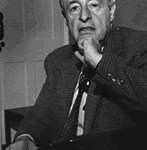
2001 Warren E. Miller Award for Meritorious Service to the Social Sciences
Sidney Verba is Carl H. Pforzheimer University Professor at Harvard University. He is the author and coauthor of a number of books on American and comparative politics, including Small Groups and Political Behavior; The Civic Culture; Caste, Race and Politics; Vietnam and the Silent Majority; Participation in America; The Changing American Voter; Injury to Insult; Participation and Political Equality; Equality in America; Elites and the Idea of Equality; Designing Social Inquiry; and Voice and Equality, as well as many articles. In 1993, he won the James Madison Prize of the American Political Science Association for a career contribution to the discipline. He is a member of the National Academy of Sciences and a Fellow of the American Academy of Arts and Sciences, and has been a fellow of the Center for Advanced Study in the Behavioral Sciences and a Guggenheim Fellow. He has chaired the Policy Committee of the Social Science Research Council and the Committee on International Conflict and Cooperation of the National Academy of Sciences. His current research interests involve the relationship of political to economic equality, mass and elite political ideologies, and mass political participation. Verba is also Director of the Harvard University Library.
Phil Converse
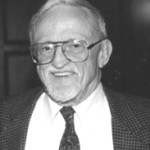
2001 Warren E. Miller Award for Meritorious Service to the Social Sciences
Phil Converse is Professor Emeritus of Sociology and Political Science at the University of Michigan. In 1962, he became the first Associate Director of the Inter-university Consortium for Political Research. During the 1980s he served as Director of the Center for Political Studies at U-M’s Institute for Social Research, Director of the Institute for Social Research, and then as Director of Stanford’s Center for Advanced Study in the Behavioral Sciences. He is a member of the American Academy of Arts and Sciences and the National Academy of Sciences and received an award for Exceptionally Distinguished Achievement from AAPOR. He has been an Elected Fellow of the American Association for the Advancement of Science, a Fellow of the Center for Advanced Study in the Behavioral Sciences, and a Guggenheim Fellow. His publications include The American Voter; Social Psychology: The Study of Human Interaction; Elections and the Political Order; Vietnam and the Silent Majority; The Human Meaning of Social Change; The Use of Time; The Dynamics of Party Support: Cohort-Analyzing Party Identification; The Quality of American Life; American Social Attitudes Data Sourcebook; and Political Representation in France. His articles include two that will be published in 2002.
Heinz Eulau
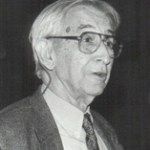
1999 Warren E. Miller Award for Meritorious Service to the Social Sciences
The 1999 recipient of the Miller award was Heinz Eulau, whose contributions to the social sciences have reflected the spirit of institution-building and dedication demonstrated by Warren Miller. In his introductory remarks, Merrill Shanks paid tribute to Eulau as one of the early leaders in the field of political behavior and as a key player in the establishment of ICPSR. Eulau also served as Chair of the ICPSR Council in 1968-1970 and as Associate Director since 1975. He is the William Bennett Munro Professor of Political Science Emeritus at Stanford University.
James A. Davis
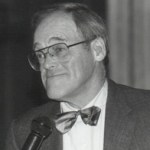
1997 Warren E. Miller Award for Meritorious Service to the Social Sciences
Those of us who deal in data tend a vast commons; the data in that commons are public goods available to the community at large. They represent a great capital resource for research into deep scholarly hypotheses, they are necessary to answer questions of pressing policy importance, and they are available for the simple satisfaction of curiosity. James A. Davis, architect of the General Social Survey, was a signal contributor to that great commons. The General Social Survey was a repeated crosssectional survey of the American public that had been conducted for the last quarter century. The survey repeats standard questions on issues of major interest to the social science community. Jim Davis’s innovation of this methodology and his persistence in seeing that new rounds of the survey are conducted in a timely fashion has revolutionized the study of social change.
Allan G. Bogue
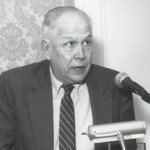
1995 Warren E. Miller Award for Meritorious Service to the Social Sciences
The 1995 Warren E. Miller Award for Meritorious Service to the Social Sciences was given to Allan G. Bogue of the University of Wisconsin, Madison. He served as a visiting professor at various universities including the Thord-Gray Lecturing Fellow, Uppsala University, Sweden, 1968 and in 1971-1972, was a visiting professor at Harvard University.Bogue was one of the pioneers of quantitative history, and his work on various key committees provided the impetus for the establishment of the Historical Data Archive at ICPSR.
Murray Aborn
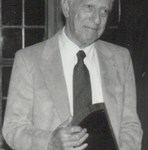
1993 Warren E. Miller Award for Meritorious Service to the Social Sciences
Murray Aborn served the social sciences for three decades as a Program Director for the Social and Economic Science division of the National Science Foundation. To this position he brought knowledge, ision, and rigor, and the understanding that social science advances most effectively when it is built upon sound methodology and a strong institutional infrastructure. When the social sciences were under assault in the early 1980s, he helped to preserve such institutions as the National Election Studies and ICPSR. The social sciences are stronger today because Murray Aborn was at the National Science Foundation during periods of both rapid growth and great challenge.
James Dowdy
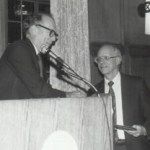
Council Chair William Flanigan
1993 Warren E. Miller Award for Meritorious Service to the Social Sciences
James Dowdy, Professor of mathematics at West Virginia University, served the social sciences as an instructor in the ICPSR Summer Program. In 14 years of teaching the Summer Program, he taught the basics of matrix algebra and calculus to more than 1,700 students. His highly-rated course made it possible for half a generation of social scientists to progress to more advanced courses in statistics and methods. His course was an international symbol of the Summer Program because of his teaching effectiveness, command of the material, and great enthusiasm. He served as a model teacher and colleague for the other faculty of the Summer Program.
Sue A. Dodd
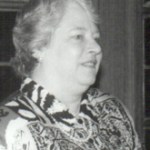
1993 Warren E. Miller Award for Meritorious Service to the Social Sciences
Sue A. Dodd served the social sciences from her position as a data librarian in the Institute for Research in Social Science, University of North Carolina, Chapel Hill. She was the originator of the concept of cataloging cornputer-readable databases. She adapted the MARC record format of the Library of Congress to that end, developed a manual for cataloging datasets, and saw the concept accepted by the American Library Association. Often serving as the Official Representative at Chapel Hill, she connected her interests in cataloging with the practical concerns of a data librarian. She has been an intellectual leader in the effort to bring bibliographic order to archival data.
Simmons Award Winners
Oregon Youth Study
2025 Piper A. Simmons Award for Social and Behavioral Research Data Contributions
The Oregon Youth Study is a long-term longitudinal study that began in 1983 to examine the etiology of antisocial behavior in boys, including contextual data from their family, peer, and school environments. Over time, the Oregon Youth Study expanded into an intergenerational study (today known as the Three Generational Study, or 3GS), which retained the original participants and their partners and children. The study’s Principal Investigator is Deborah Capaldi, PhD, Senior Research Scientist at the Oregon Social Learning Center.
Survey of Consumer Attitudes and Behavior
Piper A. Simmons Award for Social and Behavioral Research Data Contributions
The Simmons Award recipient for 2023 is the Survey of Consumer Attitudes and Behavior (also known as the Surveys of Consumers), led by Director and Chief Economist Joanne W. Hsu. The Surveys of Consumers were initiated in the late 1940s by the Survey Research Center at the University of Michigan Institute for Social Research, under the direction of George Katona. These surveys have been carried out quarterly until 1977, and monthly from 1978 onward.
The surveys use a national sample of dwelling units selected by area probability sampling that is representative of the adult population of the United States. The purpose of these surveys is to measure changes in consumer attitudes and expectations, to understand why these changes occur, to evaluate how they relate to consumer decisions to save, borrow, or make discretionary purchases, and to forecast changes in aggregate consumer behavior.
Claire Kamp Dush

2022 Piper A. Simmons Data Depositor of the Year Award
Claire Kamp Dush is Professor of Sociology and co-director of the Development Core at the Minnesota Population Center. She is a family demographer who studies intimate relationships and their intersection with human development. She is the principal investigator of two population health data collections; one funded by NICHD – the National Couples’ Health and Time Study (with Dr. Wendy Manning) and the other by NIA – the third repeated cross-section of the Work and Family Life Study (with Dr. Miles Taylor). Dr. Kamp Dush is a member of the NIH CSR Social Sciences and Population Studies B study section. She is a passionate teacher and mentor who was awarded the Alumni Award for Distinguished Teaching at The Ohio State University.
Wendy D Manning

2022 Piper A. Simmons Data Depositor of the Year Award
Wendy D. Manning is the founder of the Center for Family and Demographic Research and currently serves as its Development Core Co-Director. She is also the Co-Director for the National Center for Family & Marriage Research and served as PAA President in 2018. She is a family demographer, and her research examines how family members define and understand their obligations to each other in an era of increasingly diverse and complex family relationships. She led the research for the ASA Amicus Brief filed to the U.S. Supreme Court in same-sex marriage cases. Manning has examined the meaning of cohabitation with her work on the measurement of cohabitation, fertility in cohabiting unions, the stability of cohabiting unions, transitions to marriage, and implications of cohabitation for adult and child well-being. Her work has focused on adolescent sexual decision-making as well as the patterning and quality of young adult relationships.
ICPSR Director’s Award
Katherine Wallman
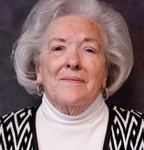
2025 ICPSR Director’s Award (Posthumous)
Katherine Wallman served for 25 years as the chief statistician of the United States, retiring in 2016. She provided policy oversight and set standards for a federal statistical system of over 100 agencies. Internationally, she represented the US in organizations like the United Nations and the Organization for Economic Cooperation and Development. Wallman improved collaboration and the quality of US statistics while enhancing data accessibility and confidentiality. In 2017, she was elected to the ICPSR Governing Council, serving with dedication from 2018 to 2022, and was in her second term when she passed on January 17, 2024.